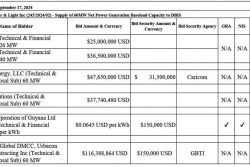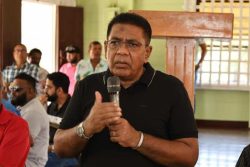On 9 July 2013, Transparency International (TI), a global organisation devoted to fighting and eradicating corruption, released its 2013 Global Corruption Barometer (GCB). The GCB is the only worldwide public opinion survey on views and experiences of corruption in general, and in which institutions the problem is most severe. It also provides a measure of people’s experience of bribery across eight different services.
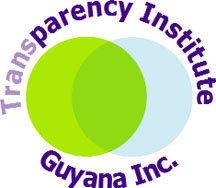 The survey of 114,000 persons in 107 countries indicated that one in four persons paid a bribe in the last 12 months when accessing public services and public institutions. These results did not reflect any improvement over the years since the GCB was first launched in 2003. In 51 countries, political parties are seen as the most corrupt institutions while 55 per cent of respondents indicated that governments are run by special interests. Many respondents also believe that governments are not doing a good job in fighting corruption and that institutions which are relied upon to fight corruption cannot be trusted. Topping the list are the police and the judiciary.
The survey of 114,000 persons in 107 countries indicated that one in four persons paid a bribe in the last 12 months when accessing public services and public institutions. These results did not reflect any improvement over the years since the GCB was first launched in 2003. In 51 countries, political parties are seen as the most corrupt institutions while 55 per cent of respondents indicated that governments are run by special interests. Many respondents also believe that governments are not doing a good job in fighting corruption and that institutions which are relied upon to fight corruption cannot be trusted. Topping the list are the police and the judiciary.
TI’s report provides two tables (reproduced below) showing the results of the survey in the Americas in a number of areas. Views were solicited on whether people feel overall corruption levels have increased or decreased in recent years; and the extent of corruption in the public sector and in different institutions. For the first time, citizens were asked about the importance of personal relationships when trying to get things done and the influence of big interests in government decision-making. The results showed that on average one out of every two persons surveyed indicated that such relationships were largely or entirely an influencing factor and that corruption has increased over the last two years. The full report can be accessed on TI’s website at http://www.transparency.org/gcb2013.
Influence of personal relationships and the influence of big interests
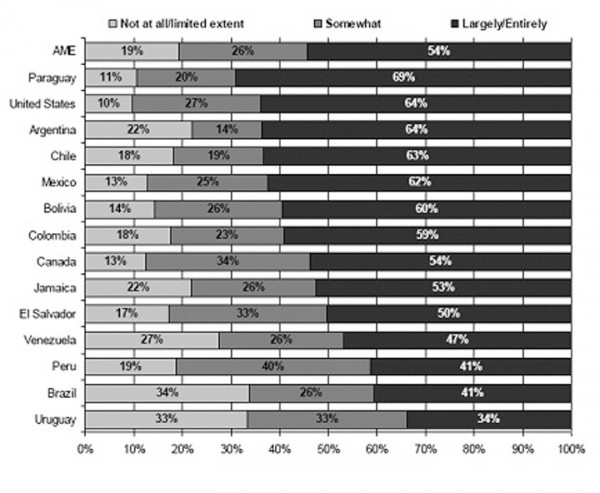 The global anti-corruption watchdog body believes that governments, civil society and the private sector need to do more to assist in the eradication of corruption. In particular, politicians can lead by example by publishing asset declarations for themselves and their immediate families while political parties and individual candidates need to disclose the amounts and sources of funding for their activities so as to, among others, avoid potential conflicts of interest.
The global anti-corruption watchdog body believes that governments, civil society and the private sector need to do more to assist in the eradication of corruption. In particular, politicians can lead by example by publishing asset declarations for themselves and their immediate families while political parties and individual candidates need to disclose the amounts and sources of funding for their activities so as to, among others, avoid potential conflicts of interest.
The encouraging news is that nine out of ten persons surveyed indicated that they are prepared to act against corruption while two out of every three persons who were asked to pay a bribe refused to do so.
The key recommendations of TI are:
Governments need to be more transparent by opening up their books and activities to public scrutiny and by ensuring that accountability mechanisms and channels are in place to get the public engaged in oversight;
Promulgating legislation to provide citizens with freedom of access to information on government programmes and activities;
Ensuring codes of conduct are in place for all public officials;
Ensuring standards of public procurement and public financial management are consistent with, among others, the United Nations Convention Against Corruption;
Prioritising anti-corruption reforms in the police and ensuring the independence of the judiciary;
Providing checks and balances to ensure that private interests and power groups do not dictate governments’ policies and actions;
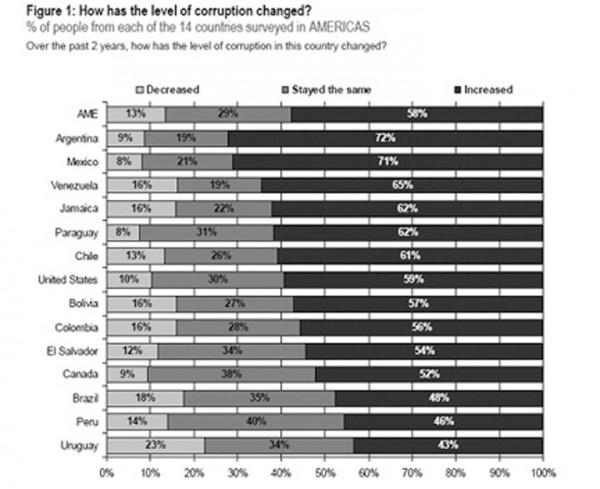 Citizens should be encouraged to refuse to pay a bribe whenever asked and should use existing reporting mechanisms to speak out about corruption that they witness or experience;
Citizens should be encouraged to refuse to pay a bribe whenever asked and should use existing reporting mechanisms to speak out about corruption that they witness or experience;
Ending impunity by effectively preventing, detecting, investigating, prosecuting and punishing acts of corruption;
Citizens should use their voice, vote and spending to punish the corrupt, such as only voting for clean candidates and parties that stand in elections, and only buying from companies that have strong integrity systems and clean business practices;
Passing and implementing laws on making political party financing transparent, including requirements for political parties, political candidates and their donors to publicly disclose donations;
Passing and implementing whistleblower laws to enable citizens to report wrongdoing in the public and private sectors without fear of retribution; and
Enabling independent civil society organisations to function as effective watchdogs of government and to help citizens to hold public officials to account.
Guyana is among a few countries not included in the survey since not every country could be included in the sample, due to funding restrictions. Notwithstanding this, several of the above recommendations resonate powerfully with local conditions and have been advocated repeatedly by a wide cross section of civil society organizations, opposition activists, and private individuals. For example, Guyana’s Integrity Commission has been inactive for several years now since no commissioners have been appointed to scrutinise the annual financial declarations of ministers of the government, members of parliament and senior public servants, among others.
Commenting on the results of the survey, the Chair of TI, Huguette Labelle stated that “Bribe paying levels remain very high worldwide, but people believe that they have the power to stop corruption and the number of those willing to combat the abuse of power, secret dealings and bribery is significant.” Labelle further stated that governments need to take this cry against corruption from their citizenry seriously and respond with concrete action to elevate transparency and accountability, including ensuring that strong, independent and well-resourced institutions are in place to prevent and redress corruption. Too many people are harmed when these core institutions and basic services are undermined by the scourge of corruption.
We at the Transparency Institute of Guyana are of the view that, although the corrupt are likely take comfort in the knowledge that they are facilitators of a growth industry, every dollar spent to grease someone’s palm is a dollar diverted for the enrichment of an undeserving few and our own impoverishment, not to mention the reinforcement of a bad habit. Let us as Guyanese citizens join the nine out of ten in the rest of the world and not wait until we have a situation as in Zimbabwe, where women giving birth have been charged US$5 every time they scream, as a penalty for “raising a false alarm”.
